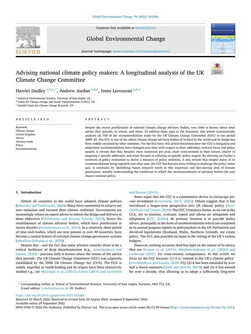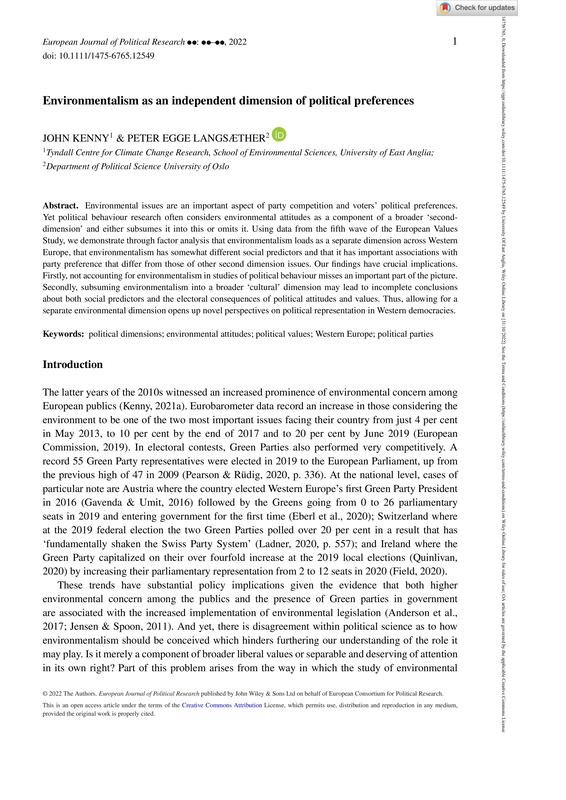By drawing on Fischer’s synthesis of policy evaluation to derive a measure of policy ambition, we also show that despite many of its recommendations being repeated year after year, the CCC has become more willing to challenge the policy status quo. We conclude by identifying future research needs in this important and fast-moving area of climate governance notably understanding the conditions in which the recommendations of advisory bodies (do not) impact national policy.
Our findings have crucial implications. Firstly, not accounting for environmentalism in studies of political behaviour misses an important part of the picture. Secondly, subsuming environmentalism into a broader ‘cultural’ dimension may lead to incomplete conclusions about both social predictors and the electoral consequences of political attitudes and values. Thus, allowing for a separate environmental dimension opens up novel perspectives on political representation in Western democracies.
Comments are closed.
|
AuthorJ Kenny Archives
July 2024
Categories |


 RSS Feed
RSS Feed